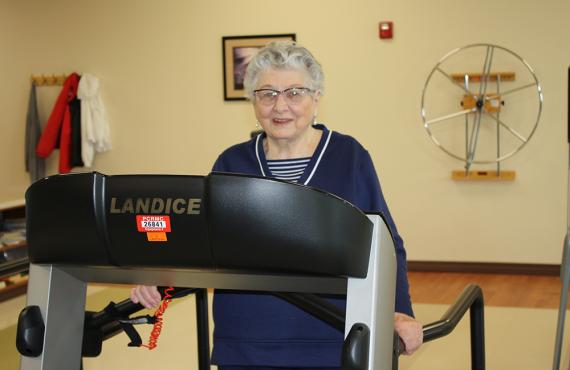Published on January 19, 2022
Read Time: Three Minutes
By Fawad Virk, MD, FACC
Phelps Health
When you visit your doctor or healthcare provider, one thing your care team always checks is your blood pressure. But why is monitoring your blood pressure important?
Blood pressure is the pressure inside your arteries that is generated by your heart to keep blood running throughout your body.

However, if that pressure is higher than normal, and if it stays high for a long period of time, then you may be diagnosed with hypertension, or high blood pressure.
Both the American College of Cardiology and American Heart Association follow these guidelines for what is considered normal, elevated and high blood pressure:
Normal: Less than 120 (systolic, or upper number) and less than 80 (diastolic, or lower number)
Elevated: 120-129 (systolic) and less than 80 (diastolic)
Stage 1 High Blood Pressure: 130-139 (systolic) and 80-89 (diastolic)
Stage 2 High Blood Pressure: 140 or higher (systolic) and 90 or higher (diastolic)
The pressure in your arteries when your heart is pumping is called systolic, or the upper number. The lower number is diastolic, when your heart is most relaxed.
Your blood pressure can vary, depending on the time of day. When you are working, you may be stressed, so the pressure might be high. When you wake up in the morning, you are more relaxed, so your blood pressure might be normal.
The causes of high blood pressure are numerous. Primary hypertension happens when the cause of high blood pressure is unknown. Many factors can lead to primary hypertension, such as genetics, environment, diet, exercise, weight and smoking.
Secondary hypertension occurs when there is a specific cause, such as a tumor, endocrine problems or thyroid problems. Blockages in the kidneys or heart also may cause high blood pressure.
Risk factors for high blood pressure can be divided into factors you can and cannot change.
For instance, you cannot change your genetics and age. If you have a family history of high blood pressure, then you have a higher risk for the condition. When you grow older, your heart’s arteries can stiffen, and you can slowly develop high blood pressure.
Other behaviors, such as losing weight, quitting smoking and changing your diet (eating less salt and more vegetables), can help reduce your risk of high blood pressure.
High blood pressure is sometimes called the “silent killer” because many people with the condition have no symptoms. Checking your blood pressure on a regular basis can help you and your care team discover any problems early.
In addition to checking your blood pressure at your doctor’s appointments, your care team also may suggest that you check your blood pressure throughout the day. You can check your blood pressure at many pharmacies, or get a monitor to check your blood pressure at home.
Because your blood pressure can change based on your environment and what you are doing at each moment, if your doctor asks you to check your blood pressure each day, you should try to always check at the same times.
In addition, remember these tips when checking your blood pressure at home:
- Check your blood pressure cuff size. The cuff should cover 80% of your upper left arm.
- Sit straight in your chair. Do not lean back or forward, and do not cross your legs.
- Before checking your blood pressure, sit quietly for five minutes.
- Always take two readings of your blood pressure, and then average the results.
High blood pressure can lead to many health problems, including heart failure, kidney failure, stroke and other diseases. By keeping your blood pressure in the normal range, you are less likely to develop these health concerns.
Talk to your doctor about high blood pressure and learn more about how to lower your risk.
Learn More About Cardiology Services
Fawad Virk, MD, FACC, is a board-certified cardiologist and interventional cardiologist at Phelps Health. Learn more about cardiology and heart care services at Phelps Health or call the Phelps Health Heart and Vascular Center at (573) 308-1301.

